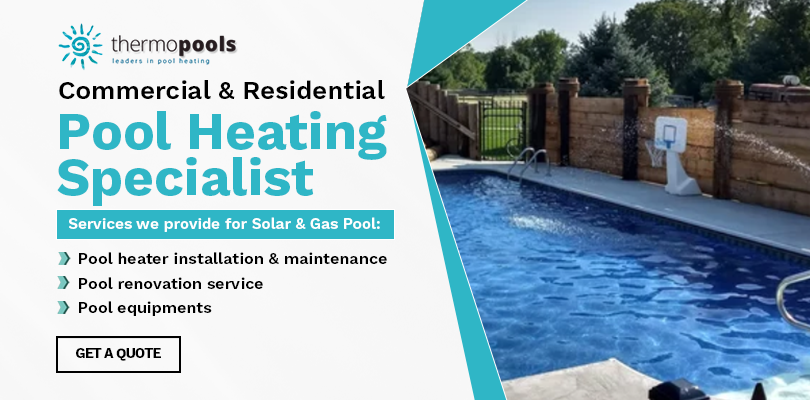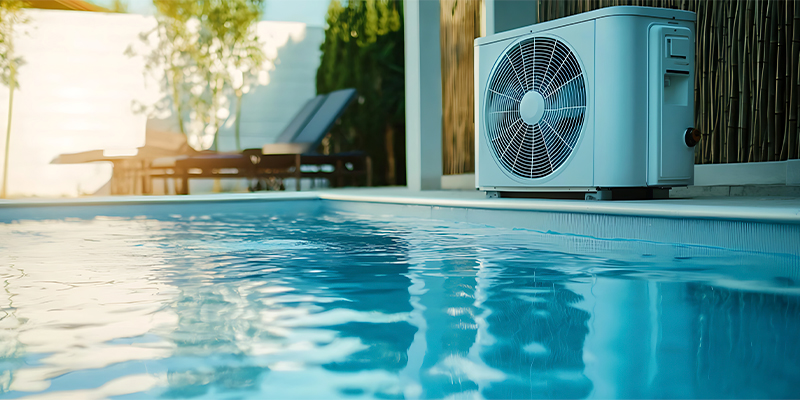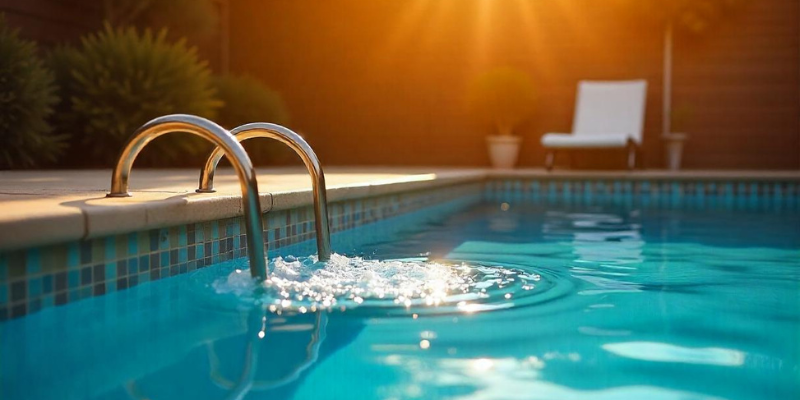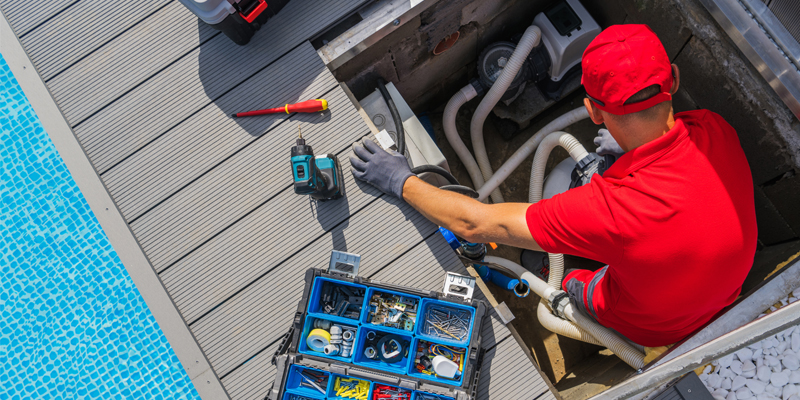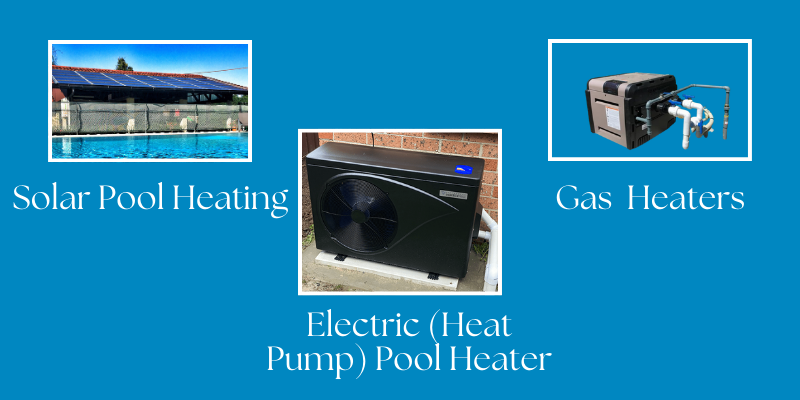
Are you curious to know the secrets behind pool heaters’ longevity? Guess no more! In this insightful blog, we address the critical factors of durability and cost and provide exclusive insights into emerging technologies, ensuring you stay ahead for efficient and long-lasting pool heating solutions.
Gas Heaters
The estimated lifespan of gas heaters is 5 to 10 years. Gas heaters are a popular choice for those seeking quick pool heating, thanks to their ability to utilise natural gas to achieve the desired temperature within a few hours. This option is particularly advantageous for year-round heating. They indeed have rapid heating capabilities; however, you should consider the following:
- Due to the increasing price of gas, operating costs may be higher.
- Gas heaters have a relatively shorter lifespan because of the combustion process, and their chemical components can lead to increased wear and tear.
- Maintenance of gas heaters tends to be more time-consuming and costly than alternative options, often requiring the expertise of professionals for repairs and servicing.
Electric (Heat Pump) Pool Heater
The projected lifespan of electric pool heaters is 10 to 20 years or more. Without a doubt, electric pool heaters remain the preferred choice for pool heating. They draw heat from the surrounding air and pass it to the pool water as it moves through the unit. Electric heat pumps require minimal electricity and exhibit optimal efficiency in warmer climates.
While some individuals experience their electric heat pumps enduring nearly 30 years, the standard range is 10 to 20 years. Ongoing technological advancements and enhanced efficiency have immensely increased the durability and reliability of modern heat pumps. Although the initial investment and installation expenses might be slightly higher than gas heaters, the long-term energy and maintenance cost savings make them the most economically viable choice.
Solar Pool Heating
The estimated lifespan of solar pool heaters is 15 to 20 years. Despite the higher initial cost of solar pool heating systems, they have minimal ongoing expenses. This system uses solar matting installed on rooftops to capture the sun’s heat and heat the pool water as it passes through the mat. It represents an exceptionally eco-friendly choice with minimal ongoing costs.
Nevertheless, while solar heating appears to be the most economical option with a reasonable lifespan, there are certain factors you need to consider:
- It requires several days to achieve the desired pool temperature.
- The effectiveness is entirely based on weather conditions and the sunlight your rooftop receives.
Evaluating All Factors
Choosing a pool heater involves more than just assessing lifespan; it requires careful consideration of factors such as your local climate and intended pool usage. For example, residents in southern Australia might find solar heating less effective due to weather conditions. If you want to enjoy a morning swim after heating the pool, options like a gas heater or an electric heat pump become more suitable.
With our extensive experience in assisting numerous individuals with pool heater choices and installations, the electric heat pump consistently emerges as the top all-rounder. It boasts low operational costs, impressive durability, relatively fast heating, and cutting-edge technology that simplifies the heating process. Capable of functioning in any weather, it significantly extends your swimming season and is suitable for year-round heating.
Maintaining Your Pool Heater
Like any appliance, providing regular care and maintenance can significantly extend the lifespan of your pool heater. The first crucial aspect is choosing the correct location. Please seek advice from a pool heater expert to determine the optimal position for the unit, shielding it from harsh weather conditions, moisture, and pests.
Additionally, conduct regular inspections of your unit to identify signs of wear and tear, including:
- Rust and corrosion.
- Strange noises such as whistling or rumbling.
- Signs of pest and rodent activity.
- Accumulation of general debris like leaves, twigs, and animal droppings.
- Fluid leakage.
- No hot water pouring out.
Promptly request for a service if you see any of these signs. The unit can be repaired in many cases, and preventive measures can be taken to avoid future damage.
Select the Appropriate Pool Heater for Your Needs
Before deciding to choose a pool heater that will serve you for a decade or two, it’s wise to consult an expert. Valuable advice is just a phone call away, and Thermo Pools’ team is here to offer free quotes on heater size and type and installation costs.





